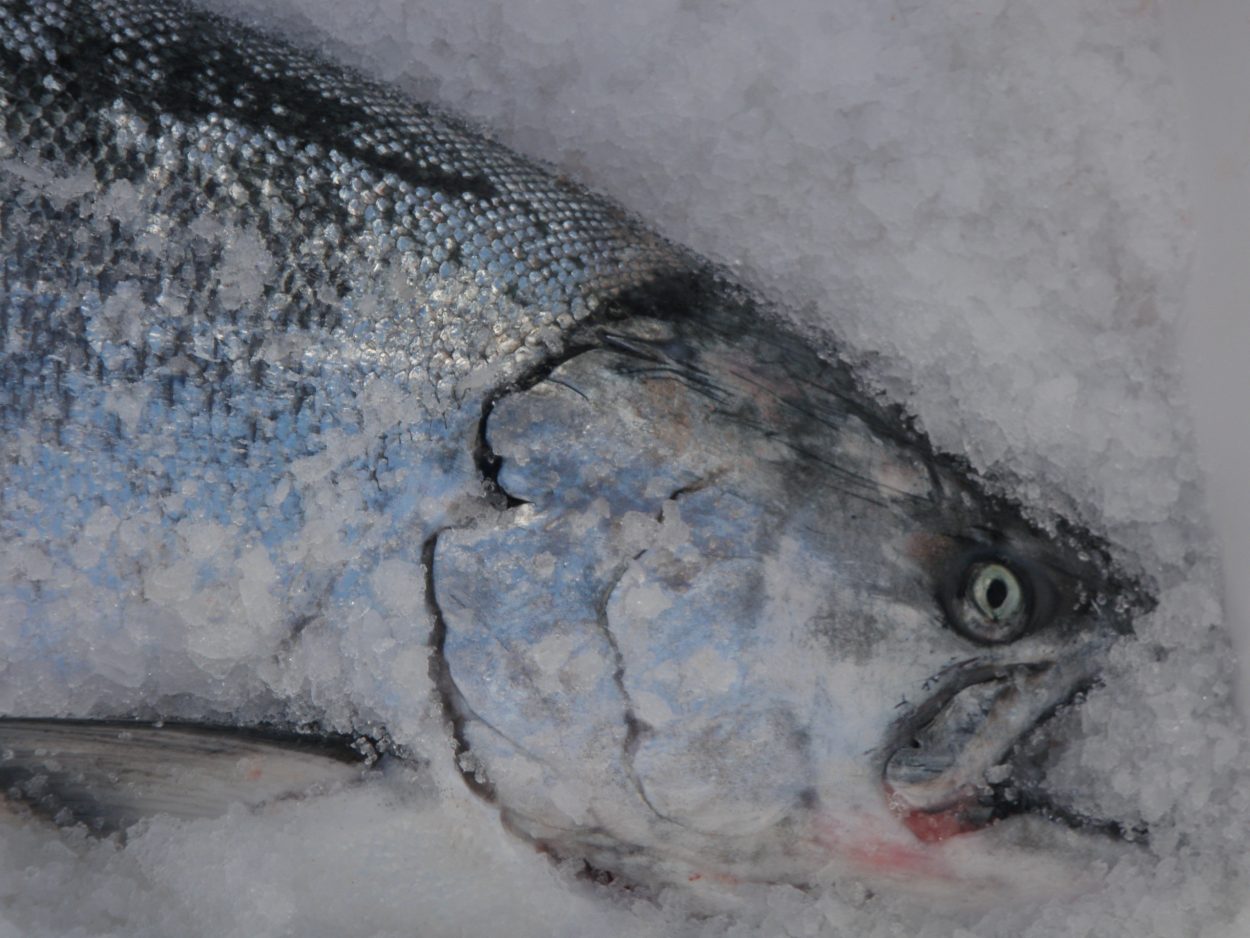It looks like a new hatchery king salmon project near Petersburg will be starting up next spring. The Southern Southeast Regional Aquaculture Association, or SSRAA, is planning to release 200-thousand smolt near the mouth of City Creek, about three miles from downtown Petersburg. SRAA is hoping some extra rearing time in a temporary net pen there will help more of the fish survive the ocean. Joe Viechnicki has more on that story.
For mobile-friendly, downloadable audio, click here.
Bill Gass is the non-profit hatchery organization’s production manager and says it’s “All systems go” for the City Creek king salmon release, ““We have all the necessary permits in place, the permits for the net pens and the fish transport permits for the fish. The fish are on hand at Crystal Lake. Come mid-april we will transport those fish out to the site, rear them for approximately six weeks and release 200-thousand we hope.”
Crystal Lake is SSRAA-run king and coho hatchery facility on Mitkof Island about 18 miles south of Petersburg. Recent Crystal Lake king returns have been poor and the proposal aims to improve the chances of ocean survival for some of the hatchery’s annual Chinook release. The project was proposed by a local charter operator and the State’s sportfish biologist in Petersburg as a possible boost to local catches.
The hatchery association’s Gass says any returns from the new netpen site will be a success, “It’s always a hope from the production standpoint to see a good ocean, to see a good return. I’ve been asked what’s a normal return and you can almost say zero is normal, since it happens. I don’t expect a zero here and zero is unusual. I’m hopeful that you’re gonna see maybe 2 or 3 percent of these 200-thousand fish survive and return as adults. I would consider that a success.”
Two to three percent would mean an annual return of between four thousand and six thousand Chinook.
Gass says the plan is to install a 40 foot by 40 foot saltwater netpen near the mouth of city creek to hold the young salmon for about six weeks each year. That netpen will have a predator net set around it to keep sea lions from the holding space. It will be anchored a couple hundred feet offshore and removed after the fish are released each year.
The new netpen site has some potential challenges that other SSRAA programs don’t – namely ice bergs from LeConte Glacier, along with the sea lions and humpback whales that frequent the area.
City Creek is a relatively small stream with natural runs of coho and pink salmon – and a dam with one of the community’s two water reservoirs. Gass says he does not know if many adult kings will make it into the creek itself, ““Well that’s yet to be seen. I don’t think they can really go very far. And the hope is they can be utilized and harvested. Those that actually make it into the stream likely will not be able to travel up and spawn and reproduce successfully. But I suspect that if there’s a decent return there’ll be a pretty hard targeted effort to catch as many fish as possible.”
Fish for the program will be produced from the annual returns at Crystal Lake Hatchery – although weak numbers in recent years have required egg contributions from the Sitka-based Northern Southeast Regional Aquaculture Association and Douglas Island Pink and Chum or DIPAC in Juneau. All three organizations have king salmon programs produced from eggs originally taken at Andrews Creek on the Stikine River near Wrangell.
The money for the new netpen rearing at City Creek comes from a grant of just over 100-thousand dollars from the Southeast Alaska Chinook Salmon Mitigation Program. Gass expects to hire a seasonal worker to help with the rearing and anticipates the cost of operating the netpen site will be about 15-thousand dollars a year.
Gass notes that Petersburg residents are probably used to seeing the Crystal Lake tanker truck each spring moving hatchery kings eventually to other release sites closer to Wrangell and Ketchikan, “We have two transport vessels that move all of our fish around and we’ll load them at the dock with the tanker. It’ll just make that 4-5 mile run down to City Creek and offload there. That’ll be much easier than trying to move them off the road system. So, come next spring when you see the tanker on the dock some of those fish will be released in the Petersburg area for a change.”
If it’s successful, the new netpen release could have the first adult fish returning to City Creek in two years, with the bulk of the first year’s release expected back in 2017.










